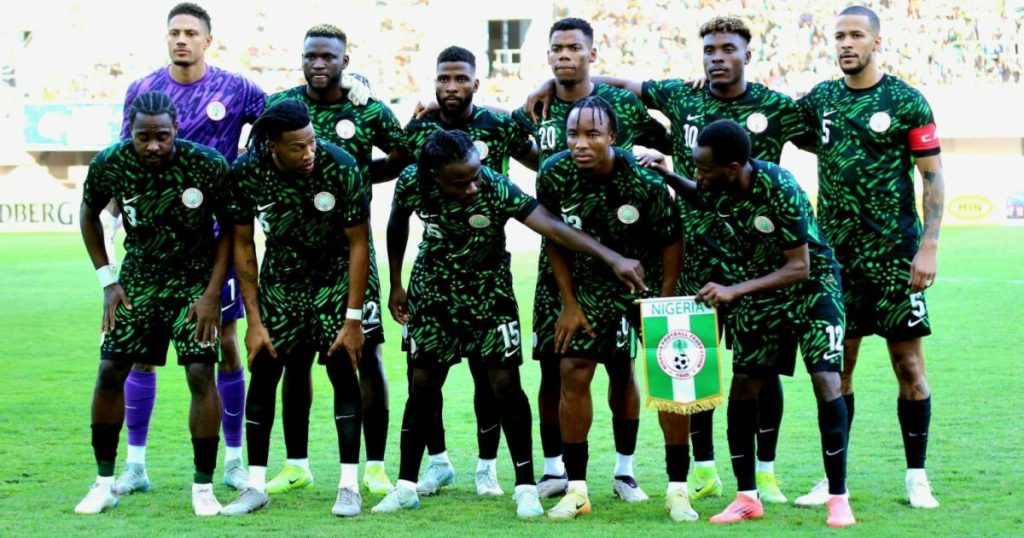Nigeria’s Football Fortunes Falter: A Deep Dive into the Super Eagles’ Ranking Decline
The Nigerian national football team, the Super Eagles, has experienced a downturn in its FIFA world ranking, falling to 45th place in the September 2025 update. This marks a concerning low point for the team, equaling their worst ranking in six years and placing them outside the world’s top 40. The decline reflects a period of inconsistent performance, raising questions about the team’s trajectory and its ability to compete at the highest levels of international football. While the Super Eagles remain a prominent force within Africa, holding the sixth position continentally, they trail behind regional powerhouses like Morocco, Senegal, Egypt, Algeria, and Côte d’Ivoire, highlighting the competitive landscape of African football.
The Super Eagles’ recent struggles can be attributed to a series of underwhelming results in international competitions. In the five matches considered for the September rankings, the team secured only two victories against two defeats and a draw. Their disappointing performance in the African Nations Championship (CHAN) in Tanzania proved particularly damaging, as they were eliminated in the group stage following a humiliating 4-0 loss to Sudan. While a subsequent 2-0 win against Congo offered a glimmer of hope, the early exit significantly impacted their ranking points. The team’s performance in the 2026 FIFA World Cup qualifiers offered a mixed bag, with a narrow 1-0 victory against Rwanda followed by a 1-1 draw against South Africa. These results, while not disastrous, failed to generate sufficient ranking points to prevent the team’s downward slide.
The FIFA ranking system, based on a complex algorithm, considers various factors, including match results, opponent strength, and the importance of the competition. Nigeria’s recent performances, especially the early exit from the CHAN tournament, have negatively impacted their accumulated points, contributing to their drop in the rankings. The team’s inability to consistently secure victories against strong opponents further exacerbates the issue, making it challenging to climb back up the rankings ladder. The ranking system’s emphasis on recent results means that past successes offer little cushion against current underperformance.
The Super Eagles’ ranking decline mirrors a broader trend of underachievement in recent years. Failing to qualify for the 2022 World Cup after a playoff defeat to Ghana dealt a significant blow to the team’s morale and standing. The current ranking underscores the challenges facing the Super Eagles as they strive to regain their former glory and re-establish themselves as a dominant force in both African and global football. The team’s current position in the 2026 World Cup qualifiers further adds to the pressure, as they sit third in their group, trailing behind Benin and South Africa. With only two matches remaining, the Super Eagles face the daunting prospect of missing consecutive World Cup tournaments, a scenario that would further solidify their decline and raise serious questions about the team’s future.
In contrast to Nigeria’s struggles, other African nations have seen their fortunes rise in the FIFA rankings. Morocco, in particular, has solidified its position as the continent’s top-ranked team, climbing to 11th globally after a string of impressive performances, including winning the CHAN trophy. Senegal’s ascent to 18th and Ivory Coast’s rise to 44th further highlight the dynamism of African football. These teams’ successes underscore the increasingly competitive landscape of African football and emphasize the need for Nigeria to elevate its game to remain relevant on the continental stage.
Looking ahead, the Super Eagles face a critical juncture in their quest to reverse their fortunes. The upcoming matches against Lesotho and Benin in October represent crucial opportunities to secure valuable ranking points and improve their standing in the World Cup qualifiers. Anything less than two victories could further deepen the crisis and prolong their stay outside the top 40. The pressure is on the team and its management to deliver results, regain the confidence of fans, and restore Nigeria’s reputation as a football powerhouse. The next FIFA Men’s World Ranking update in October 2025 will provide a crucial assessment of the team’s progress and its ability to address the current challenges. The intervening period will be crucial for introspection, strategic adjustments, and a renewed focus on achieving consistent results. The future of Nigerian football hangs in the balance, with the upcoming matches and subsequent ranking updates serving as crucial indicators of the team’s trajectory.


